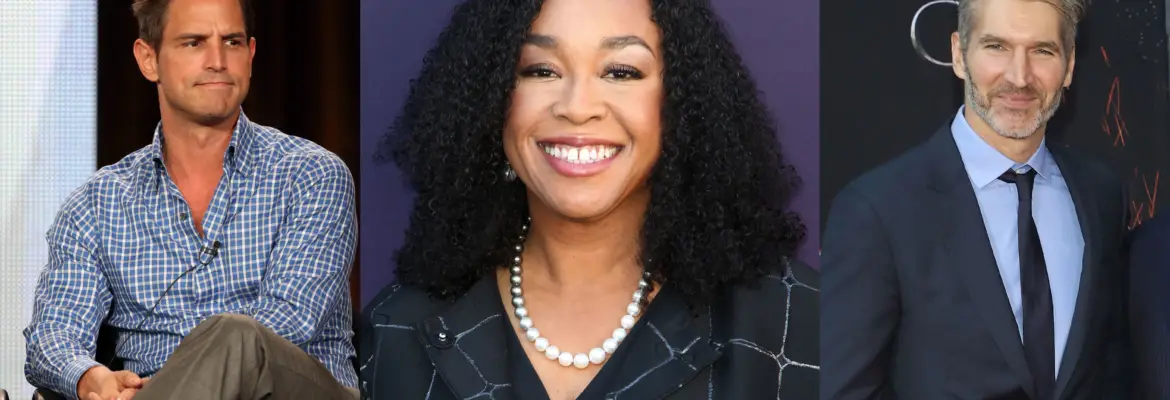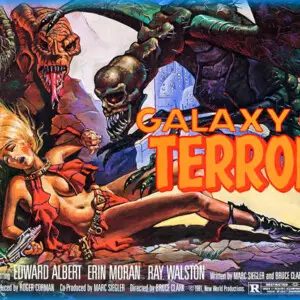What Is A Showrunner? The Role of Television’s Top Dog Explained
As their title suggests, showrunners run the show. But what does that mean exactly? And what do they actually do? Learn the wide-ranging responsibilities of television’s most important, and most demanding role.
Showrunners are television’s heavy hitters. They have creative control and managerial oversight of the entire production of a television series. The hierarchy in television is different than in film. While a director has creative control over a film production, a showrunner outranks the episodic directors on a television series. They work with both the studio/network and the crew. Often they are the show’s creator as well, and may even write or direct some episodes (especially the pilot). They also make sure each episode comes in on time and on budget.
Many showrunners are unknown, but it’s a good bet there’s many you do know. The shows of David Benioff and D.B. Weiss (Game of Thrones, Westworld), Aaron Sorkin (The West Wing) Shonda Rhimes (Greys Anatomy, How To Get Away With Murder), Ryan Murphy (Nip/Tuck, The Feud, Pose), and Greg Berlanti are almost always recognizable.
Berlanti is probably the biggest showrunner in the business right now. He oversees 17 shows, including CW’s Arrowverse and Riverdale, Fox’s Prodigal Son, Netflix’s You and Chilling Adventures of Sabrina, and DC Universe’s Doom Patrol and Titans. In 2018, he set the record for the most shows on air. Berlanti’s brand is gold, and Variety estimates his production deal with Warner Bros is worth $400 million for the four year term of his contract. (However, Shonda Rhimes may now earn more with Netflix. She states that her earnings are higher than the press reports).
While these people can command exclusive mega-deals, a lot rides on them. Let’s have a look at the typical tasks they perform.
Responsibilities of a Showrunner
A good Showrunner isn’t a dictator. The role’s not about having absolute power. They make the final decision, but the role is also collaborative. They’re also required to wear many hats. Competently. Rarely do creatives possess sharp managerial skills. But showrunners do. In fact, its required.
Before production begins they’ll develop a budget for the season and each episode. Whether they’re the creator of the show or a new showrunner taking control in a later season, the showrunner holds the creative vision for the show. This means they may have to stand up to the studio or network to protect their vision.
Sometimes the creator of the show is not the showrunner. In this case, the showrunner may act as a mentor to the creator, grooming them to take charge in later seasons. Or for a new show in the future.
A showrunner is also a diplomat, working as a liaison between the studio and writer’s room. They’ll provide notes on a writer’s script, and even polish it if necessary. Then, they might sit through the editing process offering suggestions. The degree of input into specific tasks depends on the individual showrunner.
In the video above, Robert King (The Good Wife, The Good Fight) says: “The showrunner does everything.” But according to Joseph Weisberg (The Americans): “It’s impossible to do all those things. You can’t. So it’s about deciding what you’re going to focus on, and what you’re going to delegate. And those decisions in a way are the heart of showrunning.”
Basically each showrunner has their own style. And each network, like streaming giant Netflix, has its own model. Take a look below.
Ok, so how does the showrunner differ from a producer?
There is a difference. Most showrunners are called “executive producers”. There’s a bit of confusion with that title because not all executive producers are showrunners. The title showrunner was created to distinguish them from actors who received an honorific executive producer credit but did little–if any–of the duties.
The TV producer, on the other hand, will work on specific aspects of the show like hiring directors, writers, and the cast. In other words, a producer is the person the showrunner delegates too, while they oversee. There are numerous types of producers for different aspects of production. For instance, line producers work on episode budgets, casting producers cast, production managers get an episode shot, and writer-producers work in the writer’s room.
But the showrunner may have more input in any of these areas depending on who they are and the nature of the show.
Still interested?
The role is demanding, and the buck does well and truly stop with the showrunner. Whether the ratings are good or bad, the showrunner will either be praised or blamed.
But with great responsibility comes great income. A first-time showrunner can command between $30,000 to $40,000 per episode, while someone like David Benioff and D.B. Weiss earn considerably more. The duo both earned between $100,000 to $300,00 per episode on Game of Thrones.
The showrunner may not get off lightly, but if successful, the rewards are considerable.




